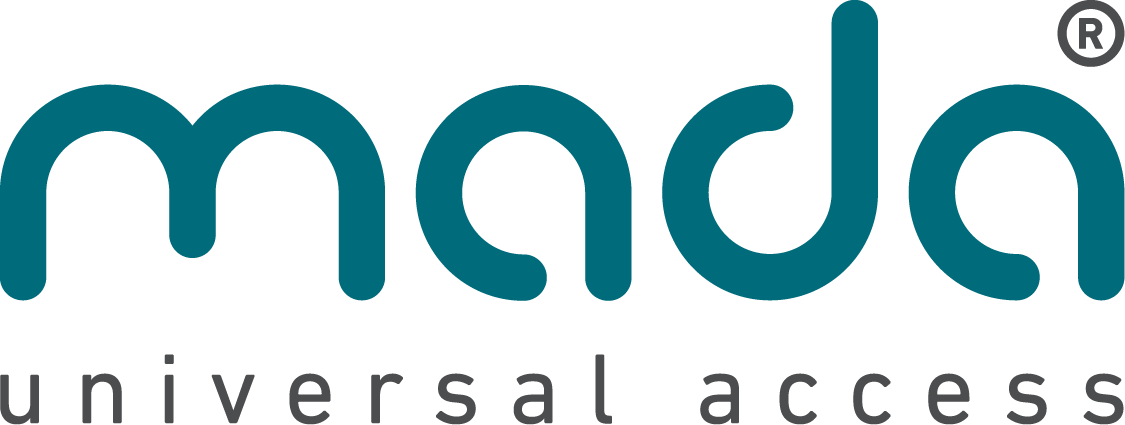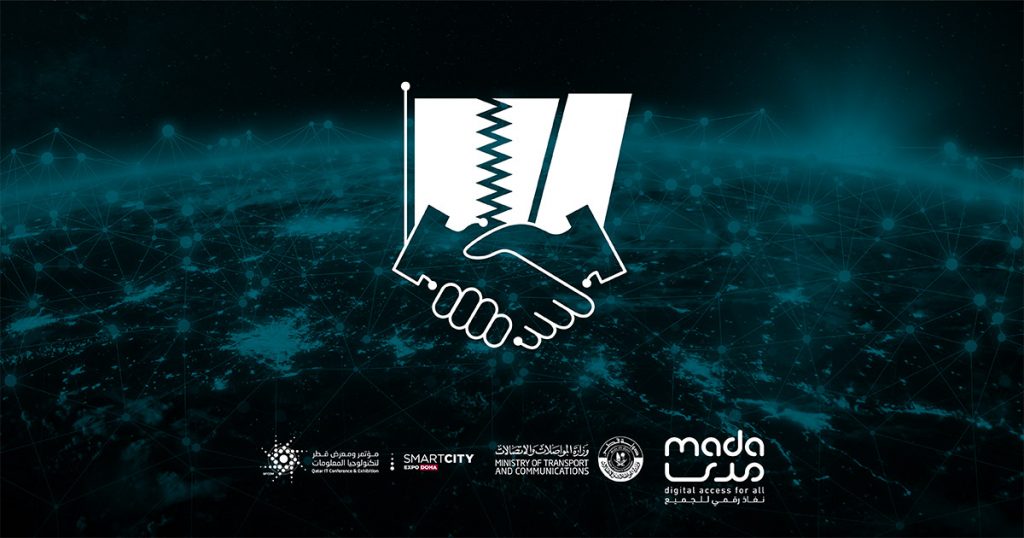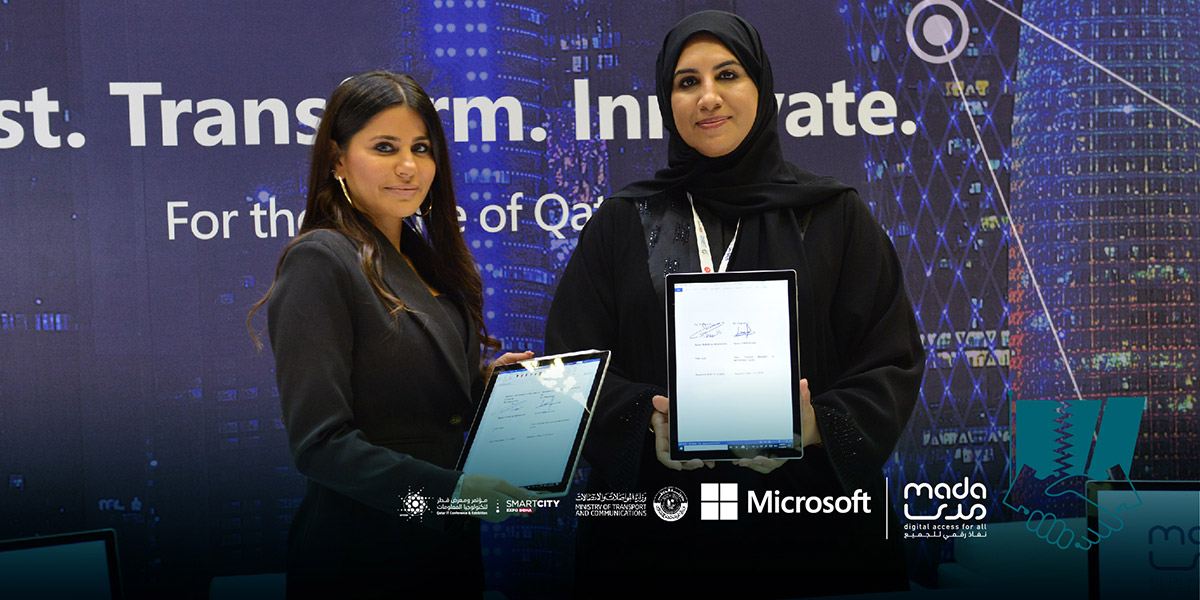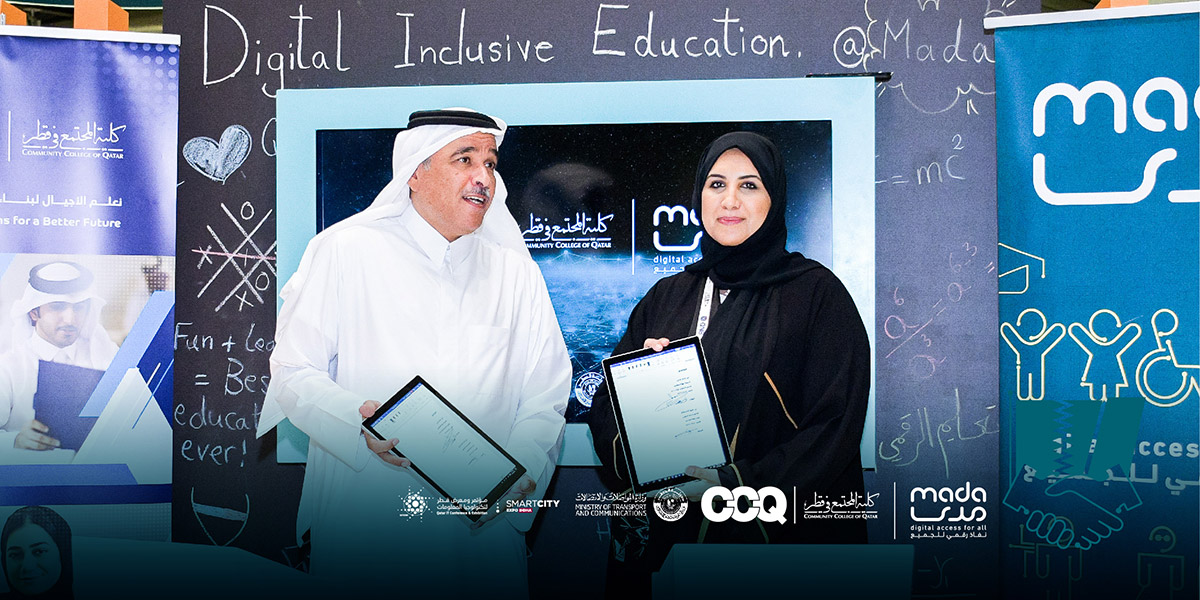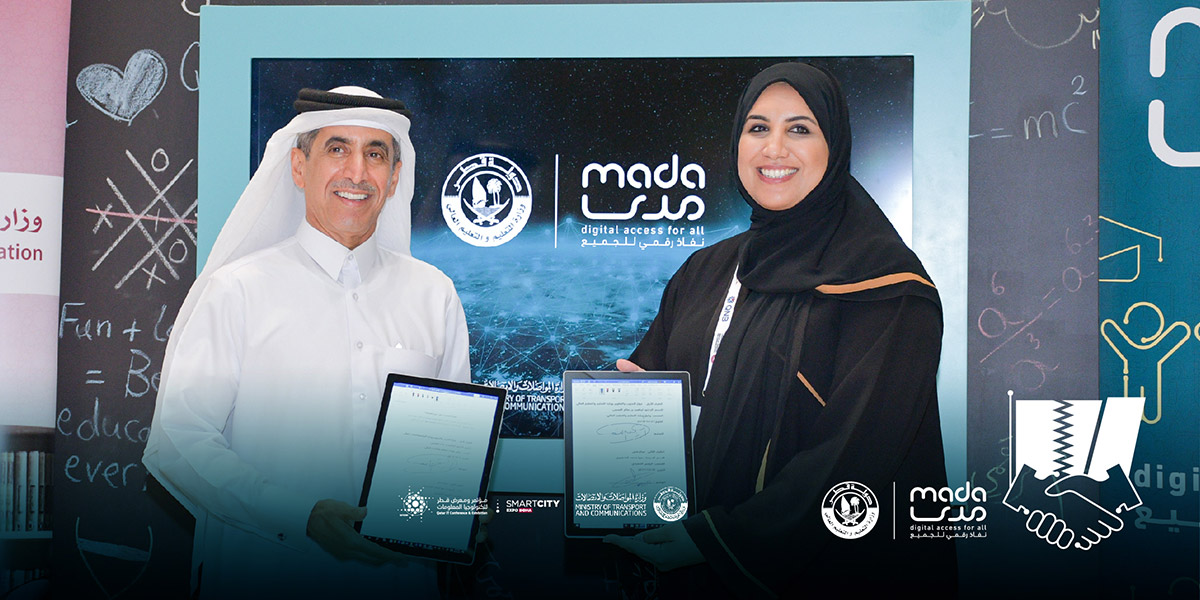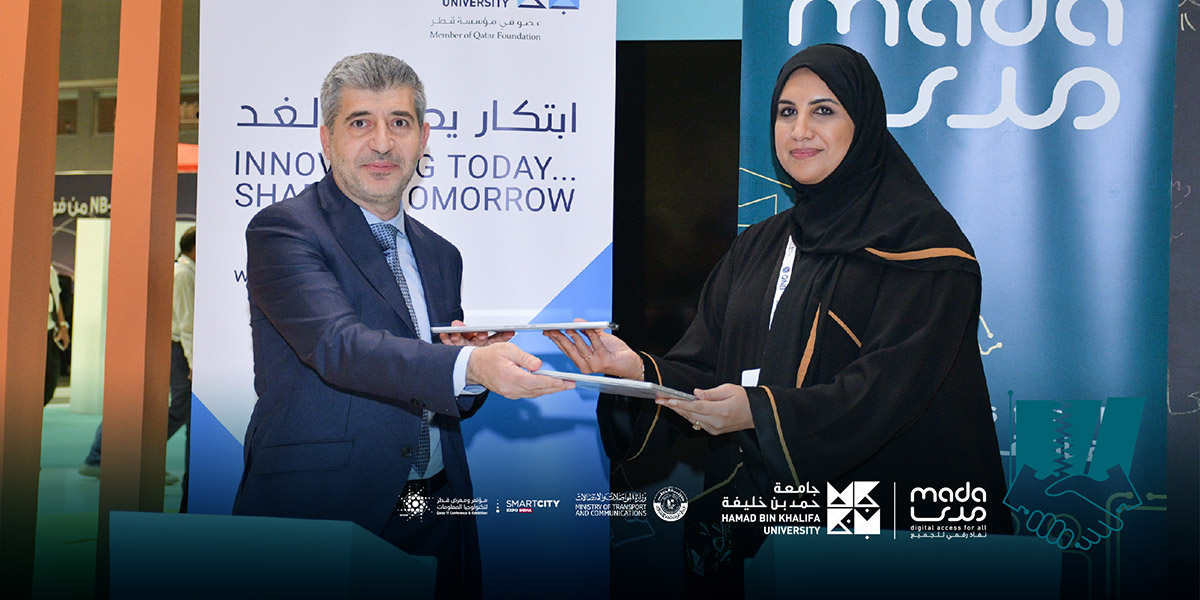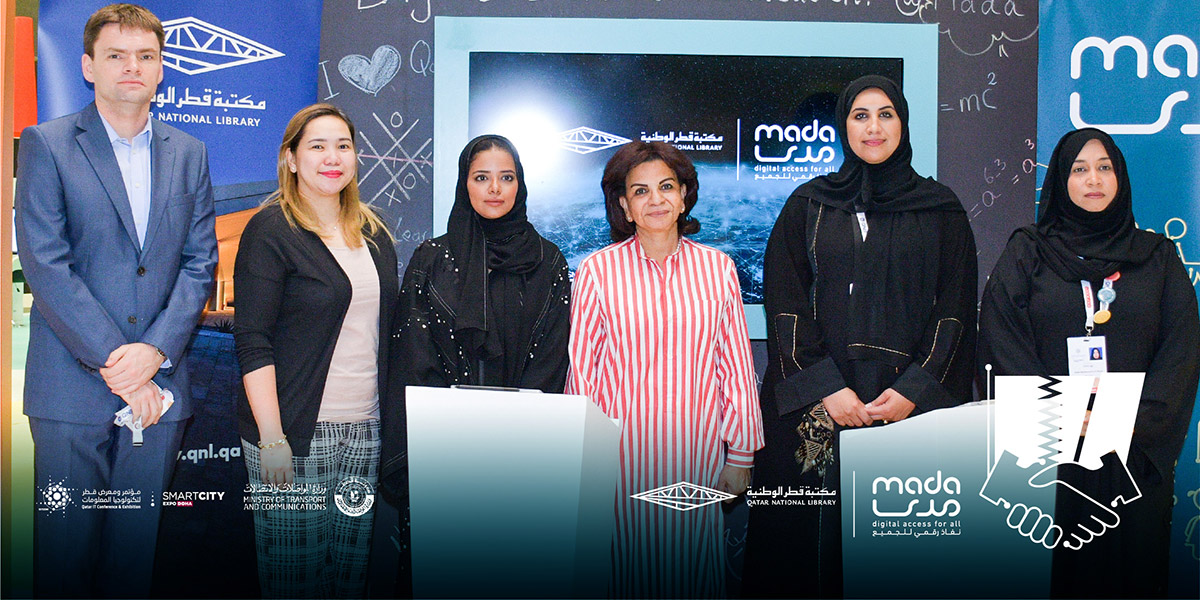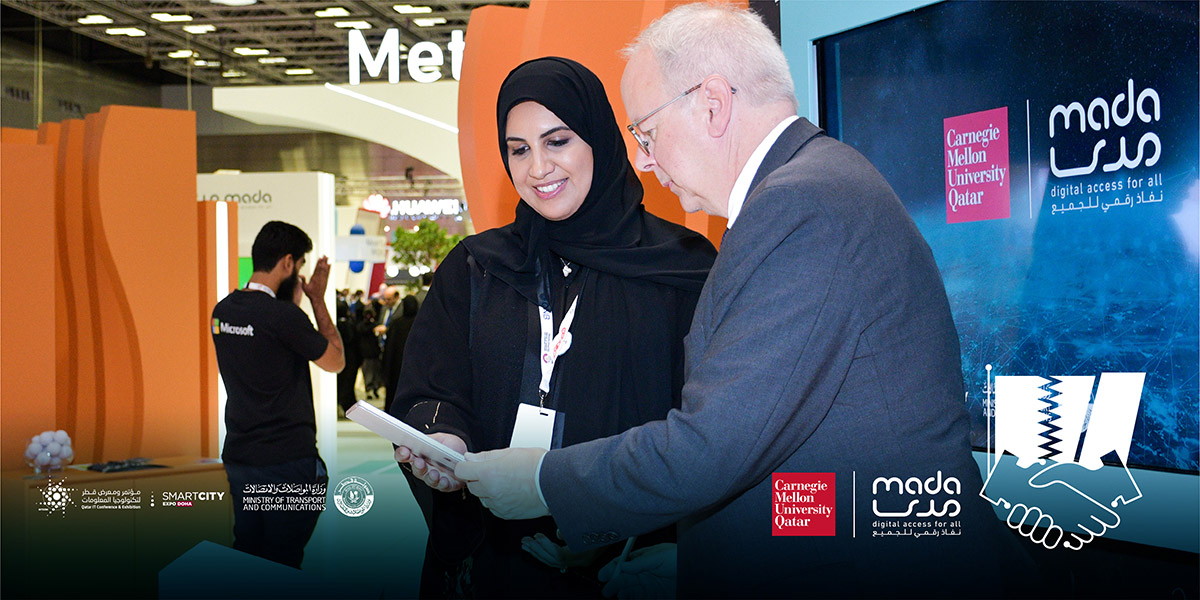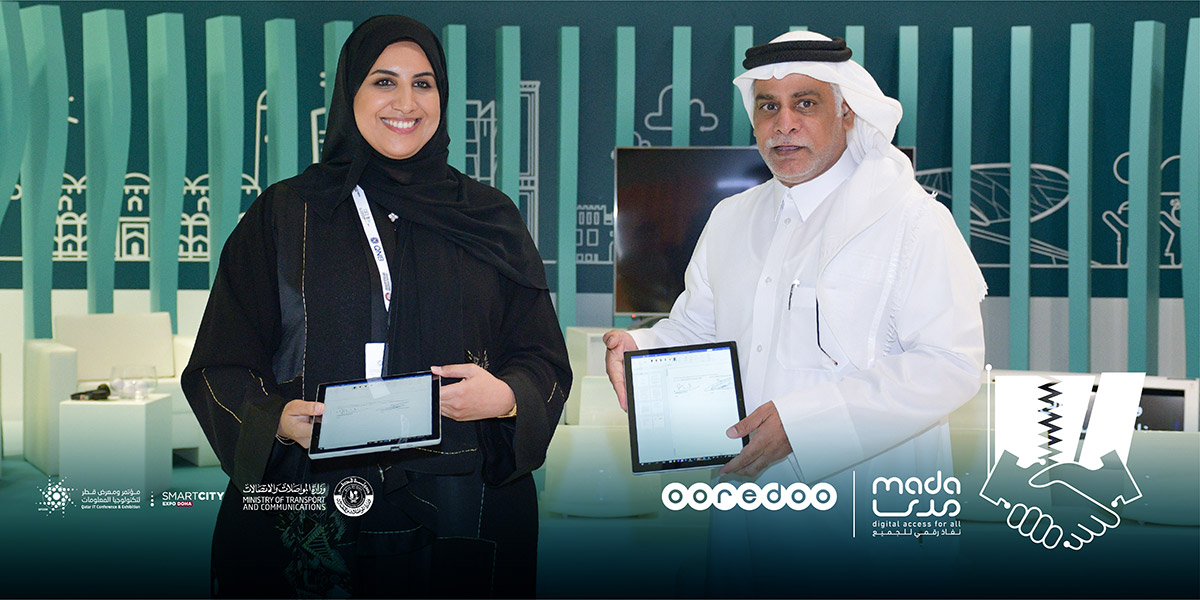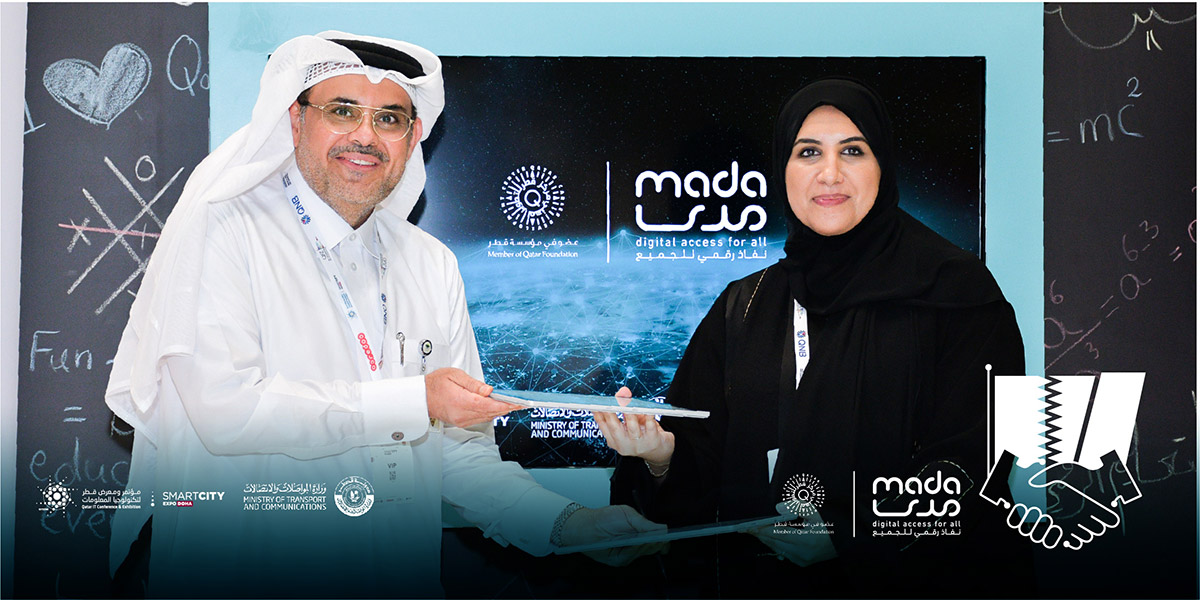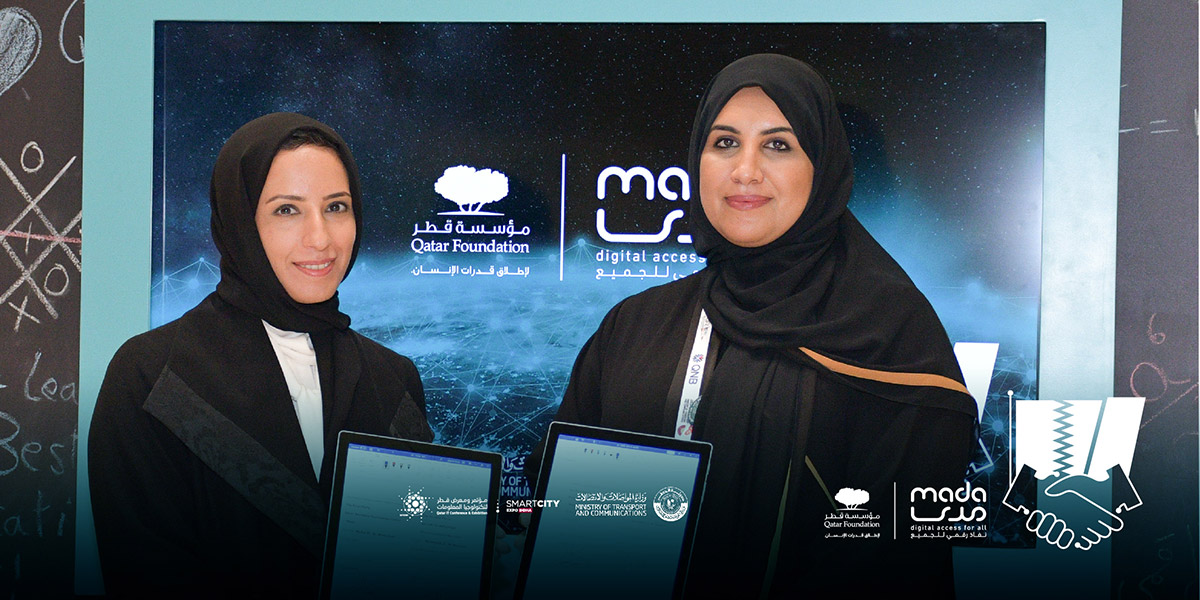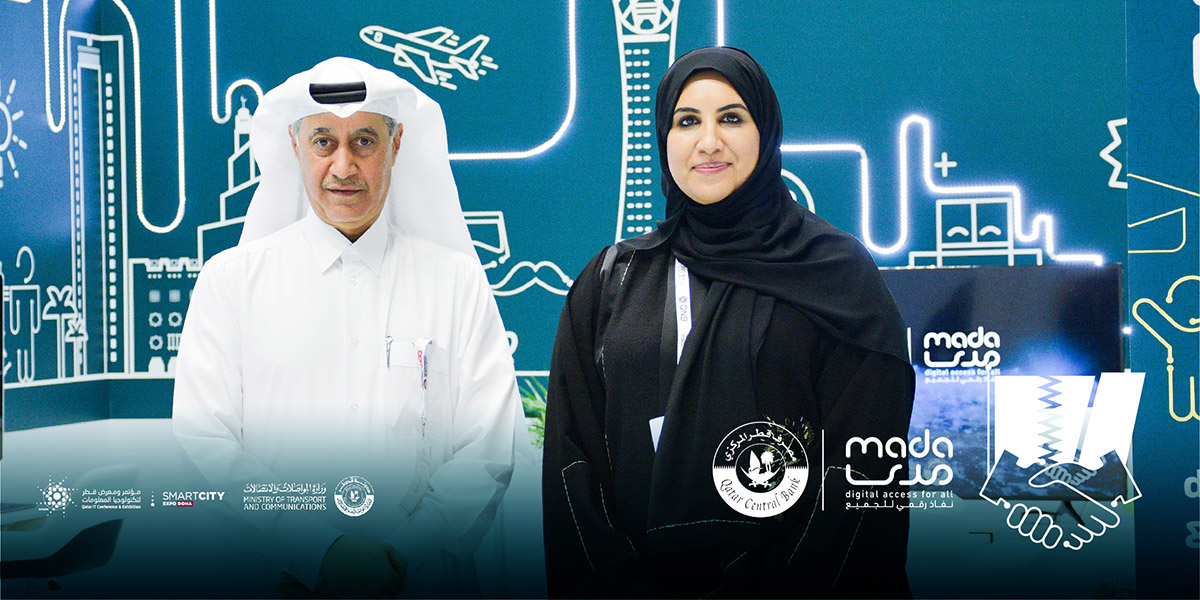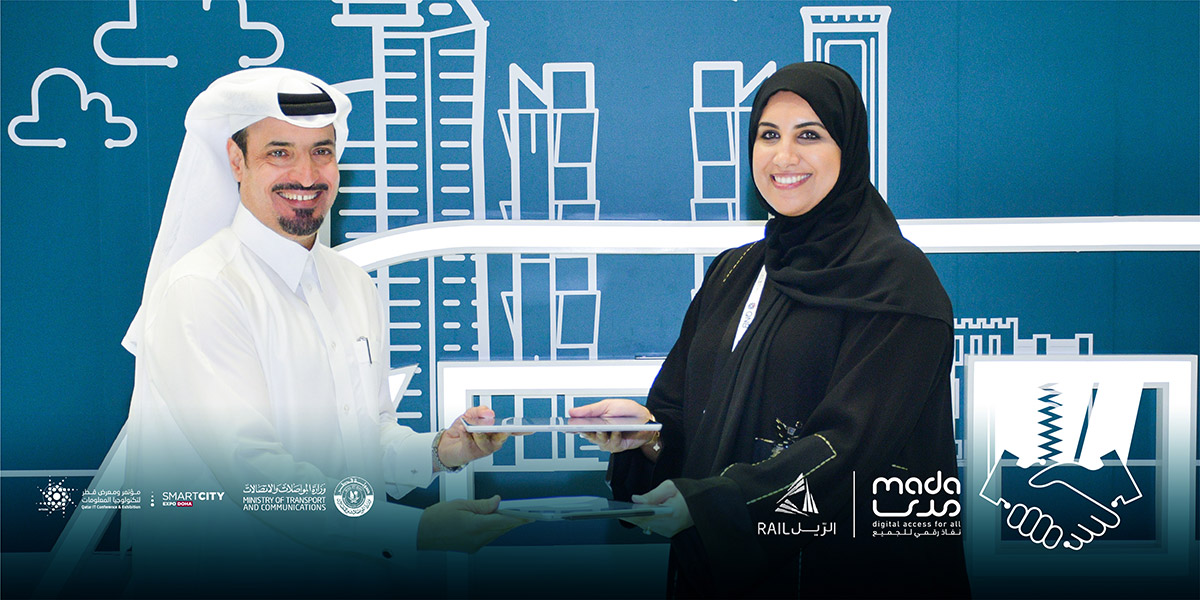As part of Mada’s strategy to enhance ICT access to unlock the potential and the inherent capabilities of all people with functional limitations – people with disabilities and the elderly – through capability building and supporting the development of accessible digital platforms, Mada has actively and meaningfully participated in the Qatar IT Conference and Exhibition (QITCOM), and has signed several collaboration agreements and strategic partnerships with many of the country’s leading players in education, culture, and society.
In terms of the education sector, Mada Center signed a strategic partnership agreement with the Ministry of Education and Higher Education in the fields of education and ICT access, which was signed by the Undersecretary of the MoEHE and the CEO of Mada. The Center also has signed a similar agreement with Hamad bin Khalifa University, represented by HBKU’s President, furthermore, it made another agreement with Qatar Foundation (Pre-University Education) represented by the Head of Pre-University Education.
Highlighting the importance of education, Mada continued to expand its strategic partnerships through an agreement with Qatar National Library represented by the Executive Director of QNL, and the Community College represented by the President. In addition, a strategic partnership agreement was signed with Carnegie Mellon University in Qatar, represented by the Dean.
With regard to supporting professional development, Mada has also signed an agreement with the Qatar Career Development Center, represented by the Executive Director of QCDC.
These partnerships aim to empower the education sector to ensure an inclusive system at all levels and a continuous learning process through ICTs.
Regarding culture and society, Mada has signed a strategic agreement with Rail, which was represented by the Chief of Strategy and Business Development of Rail. Moreover, a strategic agreement was held between Mada and Qatar Central Bank QCB, represented by QCB’s Executive Director of Public Department Banking Affairs and Currency Issue Sector.
These strategic agreements, in turn, aim to establish a culture and principle of equal opportunity for ICT access for people with disabilities and the elderly, enabling them to naturally participate in cultural life and to independently use their creative, artistic, and intellectual potential through ICTs.
Mada’s partnerships extended to other sectors to include signing strategic ICT access agreements with Ooredoo, through the Head of Operations at Ooredoo, moreover, Mada has signed a strategic agreement with Microsoft, represented by the General Manager of Microsoft Qatar. Additionally, a scope of work in the field of ICT access was also signed with the Qatar Leadership Center (QLC), represented by the Director of Finance and Administration of QLC.
The agreements included cooperation, partnership, and exchange of experiences to achieve strategic objectives and ensure the improvement of ICT accessibility to meet the requirements of the Fourth Industrial Revolution. Furthermore, to contribute to the realization of the Qatar National Vision 2030 and to support the pillars on which the national economy will be built, including knowledge-based economy, sustainable development, and innovation.
As an international-level center of excellence in digital access in large-scale Arabic, Mada offers a range of targeted services and activities to its strategic partners, including capacity building for digital access specialists through specialized training platforms and programs in accordance with international best practices and standards to improve the quality of services for people with disabilities and the elderly. Additionally, the development of digital access through the adoption of digital platforms according to global standards to support the rights of people with disabilities and the elderly to independently access ICT. Mada also provides specialized consultancy in ICT access, ecosystem, policy, and research in the field of digital access.
With regard to innovation, Mada works with various partners and innovators to develop a supportive ecosystem for the creation of technology solutions in Arabic to promote digital access for people with disabilities and the elderly. For research and distribution, Mada develops a research agenda on ICT access and seeks to advance and disseminate leading international industry practices at the global, regional, and local levels. The Center also researches, analyzes, and develops resources on ICT access and related products and solutions in accordance with the latest international standards, best practices, programs, and policies. Mada focuses on the importance of awareness-raising through its campaigns to educate the public about the impact of ICTs, accessibility, and the promotion of specific actions and measures. The Center assists people with disabilities to become cognizant about what ICTs can do to facilitate their digital integration, which empowers them economically and socially and helps them to live independently. In the area of policy awareness, Mada, in collaboration with its strategic partners, contributes to the evaluation and development of national policies and strategies that promote ICT access.
